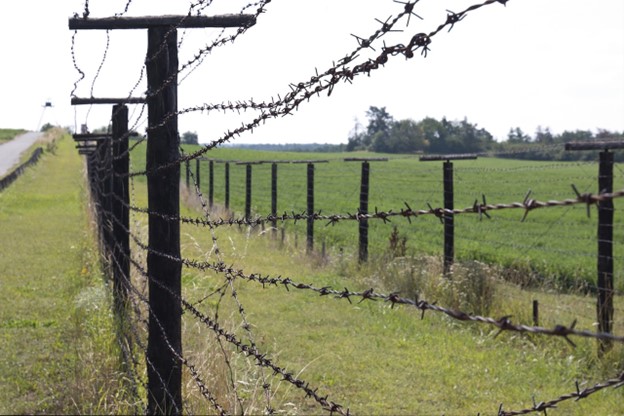Reports concerning the war in Ukraine review Putin’s military actions, but few discuss the impact on the Caucasus and Eastern Europe. Some of these nations fear a new Iron Curtain is about to descend on both NATO and non-NATO states. In a recent report from the Foreign Policy Research Institute, Philip Wasielewski traveled to several European states to find out how Putin’s war to gain influence is being conducted and its implications for US foreign policy.
The aim of the conventional war in Ukraine, he says, is to diminish Western influence and reestablish Russian hegemony in the former Warsaw Pact states. Outside Ukraine the war is political. Those operations, according to Wasielewski, have a major flaw. He points out that they “only offer the past and not a future.” There are two factors impacting future events in the European theater. First is the quality of political health in the states where Putin is conducting subversion this year. Second, to resist Russian efforts in those targeted states analysis is needed to determine the level of Western countermeasures required to slow backsliding on democratic norms. With presidential politics in the United States heating up the level of involvement by the Biden Administration in Europe remains uncertain.
There are several countries under political attack that will hold elections between 2023 and 2025. Their outcome will greatly influence their geopolitical orientation in the coming decades. Wasielewski argues that “If the war in Ukraine is a battle of modern weapon systems, these elections will be a war of ideas between East and West.” Losing these states politically would undermine the modern nation-state system which has provided prosperity and international order. Europe’s economy, as a whole, is the third largest in the world. If the United States and its allies cede the narrative to Putin and his partners, and do not counter his anti-Western propaganda, Russia could regain influence in a number of states and, with China’s assistance, acquire an extended foothold in Europe. The outcome of the kinetic war in Ukraine and the propaganda one elsewhere is uncertain.
What is known is that in Georgia the government is supporting Putin’s war in Ukraine, although the general population is fearful about being on the wrong side at its conclusion. In Moldova, the government is increasingly concerned that their neutrality no longer offers the security needed. Chișinău is leaning toward integrating into Western institutions for protection, but its population is uncertain about which sides offers the most long-term security. NATO and EU member Hungary, continues to reject many of the NATO/EU principles while retaining the security and economic benefits from the associations. Victor Orban, prime minister since 2010, recognizes that his country is geographically safe. Wasielewski says that Hungary’s government is motivated by a “selective history” and that more significant is Orban’s desire to stay in power. To do so, the prime minister acts as a pivot between Moscow and the Western nations. Although Poland is in a similar domestic position, its geographical position and history diverge from Hungary’s. That government strongly opposes Russian intervention in Ukraine and in Polish political affairs. Domestic political divisions and historical legacies have the potential to create political instability in the country, says Wasielewski. He adds that Lithuania, one of the states he visited this summer, is “the most loyal adherent to NATO and EU principles, but fears that if Russia is not deterred, a war could destroy Lithuania even if it is on the winning side.”
Russia is exploiting peoples’ fear in Eastern Europe. Key identity issues include grievances by minority groups, those linked to religion, and people concerned about undermining cultural values. Putin’s propaganda machina morphs concerns over welfare and economic needs into narratives blaming the West as the true source of their problems. Russia is presented as the solution to their fears. At issue is that Moscow’s political warfare strategy only offers a past and not a future for those former members of the Soviet Union.
It will be up to Washington and its NATO allies to combat these perceptions, overturn Russian political advances, and reinforce liberal democratic values in the region. Many of the former Soviet satellite states believe that only the United States is strong enough to protect them militarily and economically. From Russia’s perspective, its former Warsaw Pact states should be “independent but not sovereign.” Putin’s goal is to allow these states to make their own decisions only when not in conflict with Moscow’s interests.
From these states, Wasielewski found that in all but Hungary, they palpably feared a Russia attack using ground, air, or cyber warfare. The populations fear the destruction of their cities as happened in Grozny, Aleppo, and Bakhmut. Second, he suggests that the Eastern Europe believes subversion could, or is, undermining their developing democratic processes is favor of authoritarian practices reminiscent of the phrase “For my friends everything; for my enemies THE LAW!” Economically these states also worry that energy supplies will be interrupted or that there will be an embargo of their imports. Putin’s war in Ukraine is not simply a theoretical threat beyond Ukraine; it is a genuine concern about the future of Europe.
Daria Novak served in the U.S. State Department
Illustration: Pixabay
